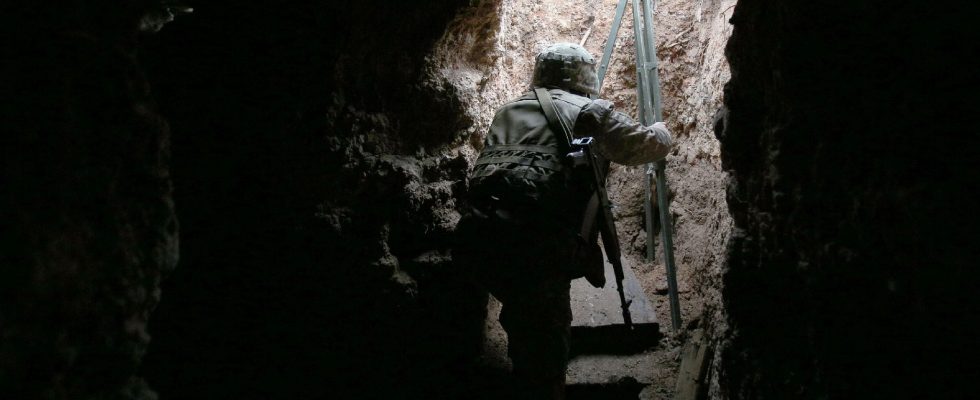“France is the subject of yet another crude Russian disinformation campaign,” Sébastien Lecornu denounced this Friday, January 26. The Minister of the Armed Forces, who spoke in a press release, reported a “Russian intoxication maneuver” while the country has been disseminating information for several days on the alleged death of several “French mercenaries”.
The case began on January 17: Russian Defense Minister Sergei Shoigu claimed that strikes carried out by his army destroyed a building in Kharkiv, in eastern Ukraine, and killed 60 fighters. Still according to the minister, the building served as a base for mercenaries “most of whom were French citizens”.
If France quickly denies the information, and affirms that it has no mercenaries, the French ambassador in Moscow is summoned on the subject of the alleged “increasing involvement” of Paris in the conflict in Ukraine. “The disinformation maneuver continued on January 22 with the dissemination of lists of alleged French mercenaries killed in this attack on Russian Telegram channels,” relates the press release from the French Ministry of the Armed Forces. Two days later, the Russian Parliament passed a resolution condemning the presence of French mercenaries fighting alongside Ukrainian forces.
France, from where several citizens left to fight on the Ukrainian front against the Russian army – without it being possible to determine their number – prohibits mercenarism. Since a 2003 law, the practice, which refers to the recruitment by a foreign state of fighters in exchange for remuneration, is in fact punishable by five years of imprisonment.
A reaction to French support for Ukraine
“Since the start of the conflict in Ukraine, France has been the victim of a Russian disinformation campaign, which has intensified following the reaffirmation of our support for Ukraine,” insists the ministry. On the eve of the alleged death of French mercenaries in kyiv, Emmanuel Macron announced the delivery of 40 long-range missiles to Ukraine, and “hundreds of bombs”. “We cannot let Russia win,” he said.
France had already reacted to disinformation campaigns carried out against it by Russia since the start of the offensive in Ukraine. In June 2023, the Quai d’Orsay revealed the existence of an operation carried out online on behalf of Russian power with the aim of discrediting the French state. “This campaign is based in particular on the creation of false Internet pages usurping the identity of national media and government sites as well as on the creation of false accounts on social networks,” declared the Minister of Foreign Affairs of the time, Catherine Colonna.
The operation, called “Doppelganger”, German translation of “double”, consisted of the replication of several French media sites and institutions disseminating false information.
